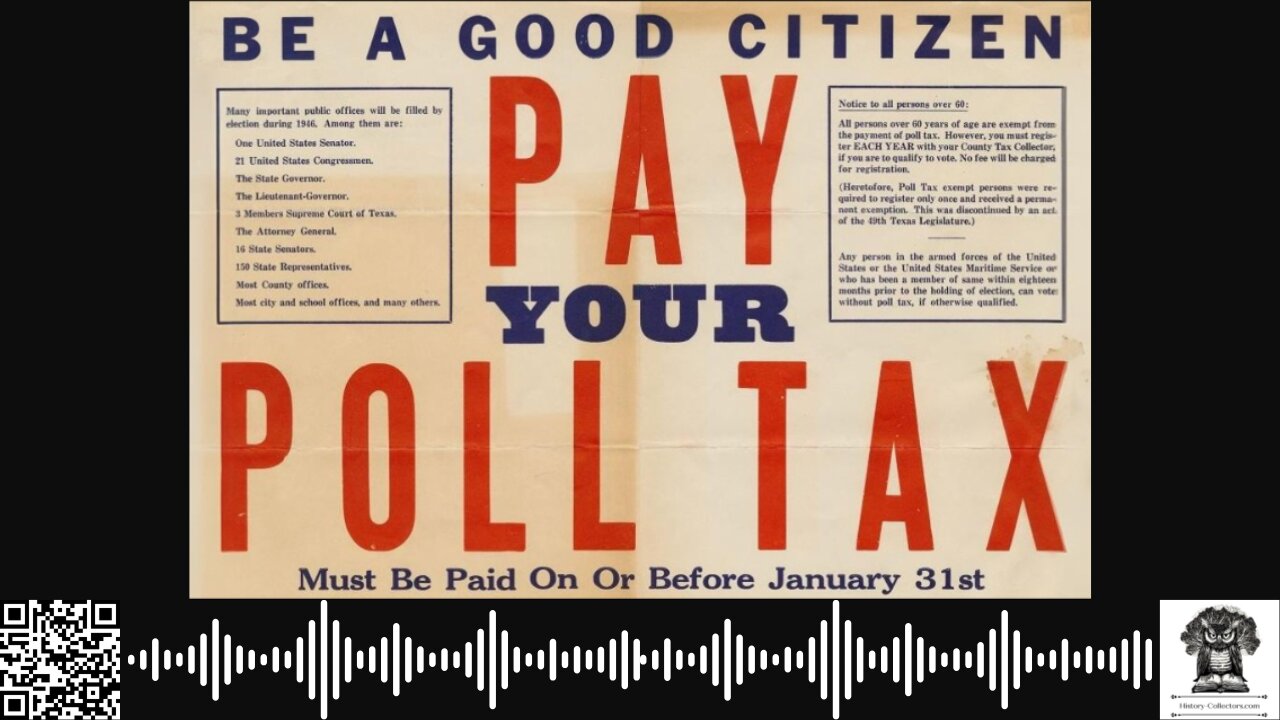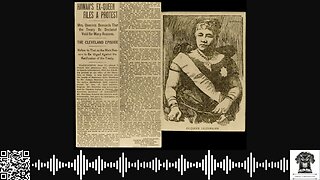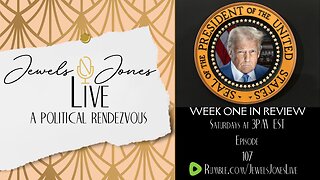Premium Only Content

#OnThisDate January 23, 1964: Abolishing Poll Taxes
https://history-collectors.com/ | Own A Piece Of History
The United States Ratified The Twenty-Fourth Amendment To The Constitution, Marking A Pivotal Step In The Nation's Pursuit Of Electoral Equality. This Amendment Prohibited Both Federal And State Governments From Imposing Poll Taxes As Prerequisites For Voting In Federal Elections. The Ratification Addressed A Discriminatory Practice That Had Long Disenfranchised Low-Income Voters.
The Poll Tax Emerged In The Late 19th And Early 20th Centuries As Part Of A Series Of Measures Designed To Suppress The Low-Income Vote By Requiring Citizens To Pay A Fee To Vote, States Effectively Excluded Those Who Could Not Afford The Tax, Disproportionately Affecting Low-Income Voters.
Efforts To Eliminate The Poll Tax Gained Momentum In The Mid-20th Century. On August 27, 1962, Congress Proposed The Twenty-Fourth Amendment, Aiming To Remove Economic Barriers To Voting In Federal Elections. The Amendment's Text Stated: "The Right Of Citizens Of The United States To Vote In Any Primary Or Other Election For President Or Vice President, For Electors For President Or Vice President, Or For Senator Or Representative In Congress, Shall Not Be Denied Or Abridged By The United States Or Any State By Reason Of Failure To Pay Any Poll Tax Or Other Tax."
The Ratification Process Concluded On January 23, 1964, When South Dakota Became The 38th State To Approve The Amendment, Achieving The Necessary Three-Fourths Majority Required For Adoption. President Lyndon B. Johnson Hailed This Achievement As "A Triumph Of Liberty Over Restriction" And "A Verification Of People's Rights."
The Amendment's Impact Extended Further In 1966 When The Supreme Court, In Harper v. Virginia State Board Of Elections, Declared That Poll Taxes In All Elections, Including State And Local, Were Unconstitutional Under The Equal Protection Clause Of The Fourteenth Amendment. This Decision Effectively Dismantled The Poll Tax As A Barrier To Voting Across The United States.
The Ratification Of The Twenty-Fourth Amendment Represented A Significant Victory In The Equal Rights Movement, Reinforcing The Principle That The Right To Vote Should Not Be Contingent Upon One's Financial Status. It Paved The Way For Subsequent Legislation, Such As The Voting Rights Act Of 1965, Which Sought To Eliminate Other Forms Of Discrimination In Voting Practices.
--------------------------------------------------------------------------------------------
Whether You're Commuting, Working Out, Or Just Relaxing, These Recordings Give You The Freedom To Absorb Knowledge At Your Own Pace, Wherever You Are.
Tune In To Focus Deeply On The Content Without Visual Distractions, And Easily Control Playback To Review Complex Topics As Needed.
Perfect For Auditory Learners Or Anyone Looking To Maximize Their Time — Click Play All To Listen Now And Transform Your Time Into A Productive Learning Session!
For Enthusiasts Of Historical Ephemera, Visit History-Collectors.com To Find Collectibles That Might Complement Your Collection.
You Can Own A Piece Of History.
Before You Go, A Simple Way To Support The Efforts Of This Channel Is To Like, Subscribe, Comment And Share.
Follow: https://rumble.com/c/c-6336896
-
 3:00
3:00
History-Collectors.com
8 days ago#OnThisDate January 17, 1893: Hawaiian Coup
5 -
 20:07
20:07
BlackDiamondGunsandGear
17 hours agoSPRINGFIELD ECHELON COMPACT / NOT GOOD
48.8K3 -
 1:05:06
1:05:06
Man in America
17 hours agoThe Terrifying Truth Behind Chemical Fog, Wildfire Smoke & Chemtrails w/ Dr. Robert Young
48.4K64 -
 2:54:47
2:54:47
Tundra Tactical
10 hours ago $14.46 earnedSHOT Show 2025 Wrap Up!! On The Worlds Okayest Gun Live Stream
77K4 -
 LIVE
LIVE
Right Side Broadcasting Network
1 day agoLIVE REPLAY: President Donald J. Trump Holds His First Rally After Inauguration in Las Vegas - 1/25/25
3,426 watching -
 2:55:24
2:55:24
Jewels Jones Live ®
1 day agoWEEK ONE IN REVIEW | A Political Rendezvous - Ep. 107
137K45 -
 1:33:29
1:33:29
Michael Franzese
1 day agoTrump Wastes No Time: Breaking Down Trump’s First Week Executive Orders | LIVE
144K120 -
 1:26:44
1:26:44
Tactical Advisor
20 hours agoTrump Starting Strong/Shot Show Recap | Vault Room Live Stream 015
103K9 -
 10:18
10:18
MrBigKid
15 hours ago $2.36 earnedInsanely Compact Hunting Tripod you HAVEN'T heard of... Revolve
56.8K5 -
 20:29
20:29
marcushouse
22 hours ago $8.49 earnedUnleashing the Power of SpaceX's Starship: Why is it a Big Deal!?
90.8K22